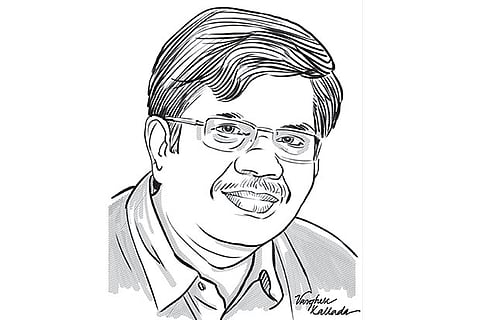

Chennai
In 1996 the Supreme Court struck down the law holding that horse racing was neither “gaming” nor “gambling” as defined and envisaged under the Madras Police Act and Gaming Act and the penal provisions of those Acts are not applicable to the horse racing which is a game of skill.
A retired police official has recently recommended betting in a game with good regulation and responsible gaming be allowed. Quoting the example of Sikkim where it is permitted, he stated that such permission will help increase revenue and employment.
Time and again we are exposed to the epic Mahabharata, to make us realise gambling can lead to a fratricidal war. Such moral lessons are not given without a purpose.
The Police Act of 1888 specifically banned betting and gamble on (i) on a horse-race, or (ii) on the market price of cotton, bullion, or other commodity or on the digits of the number used in stating such price, or (iii) on the amount or variation in the market price of any such commodity or on the digits of the number used in stating the amount of such variation, or (iv) on the market price of any stock, or share or on the digits of the number used in stating such price or (v) on the number of registration or on the digits of the number of registration of any motor vehicle using a public place, or (vi) on any transaction or scheme of wagering or betting in which the receipt or distribution of winnings or prizes in money or otherwise is made to depend on chance.
However, in the cities and rural areas hundreds of clubs (common-gaming-house) sprung up, luring people to play cards including rummy game. Spaces were hired known as gaming houses (in ordinary parlance called as Clubs). Not stopping with the Police Act, the Tamil Nadu govt. brought another law in the year 1930 known as The Madras Gaming Act “to provide for the punishment of gaming and the keeping of common gaming-houses”. Unfortunately, the Act also provided an escape route where it had exempted that it shall not apply where mere skill is involved in such games.
The Supreme Court in 1968 held that the game of rummy was a game of mere skill and not a game of chance. The gambling agencies have shifted to international cricket matches. Every attempt by the enforcing agencies to prevent gamble had been thwarted by clever legal arguments. The suggestion, to have betting regulated as it will bring revenue and employment doesn’t seem to take into account the gullibility of the ordinary peasants of this country. The state has a higher responsibility to protect the people from any kind of vice including the gamble and betting. They have to be protected from falling into the trap.
— The writer is a retired Judge, Madras High Court
Visit news.dtnext.in to explore our interactive epaper!
Download the DT Next app for more exciting features!
Click here for iOS
Click here for Android